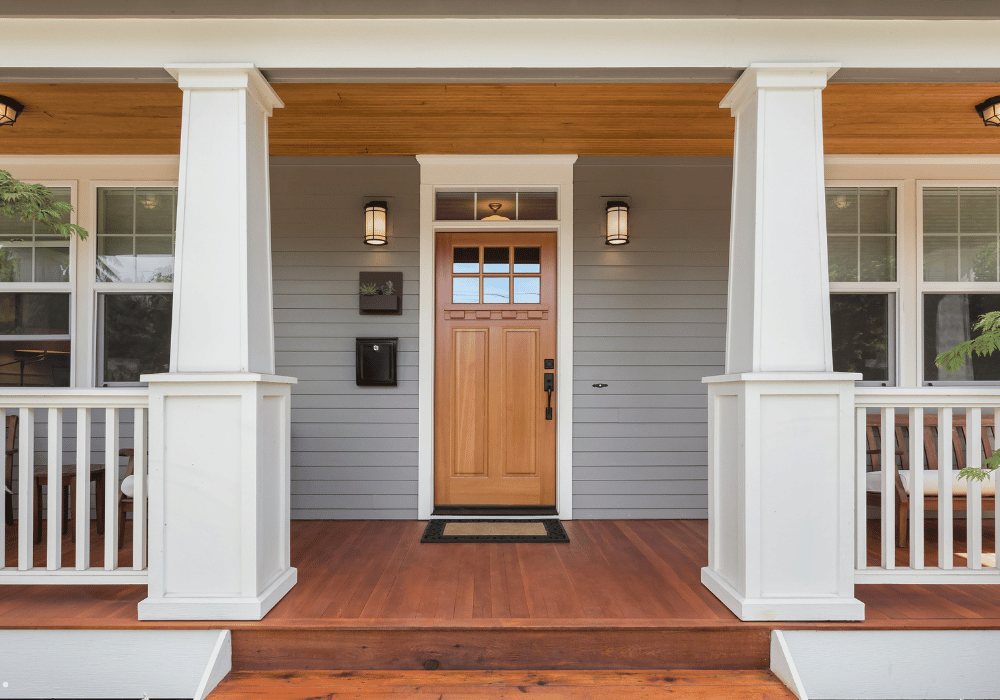In the evolving world of modern architecture, materials that once seemed ordinary are now making extraordinary impacts. Among these, aluminum doors stand out as a game-changer. They are transforming spaces with their sleek design, versatility, and unmatched durability. Whether you’re an architect, designer, or simply a homeowner interested in cutting-edge innovations, understanding the potential of aluminum doors is essential.
The Rise of Aluminum in Contemporary Design
Aluminum has been steadily gaining popularity in contemporary design over the years. Known for its lightweight nature and corrosion resistance, it’s become a staple material in architectural projects. Architects appreciate aluminum for its ability to be molded into various shapes and designs, allowing for architectural creativity without compromising structural integrity. This versatility is particularly evident in the use of aluminum doors, which are now seen in both residential and commercial settings.
From minimalist designs to elaborate structures, aluminum doors cater to a wide range of styles. Their ability to blend with glass panels further enhances their appeal, creating an open and airy feel in any space. This integration with glass not only adds aesthetic value but also facilitates natural lighting, a crucial aspect in sustainable architecture.
Additionally, the aesthetic potential of aluminum doors is matched by their performance benefits. They offer excellent thermal and acoustic insulation, contributing to energy efficiency and reducing noise pollution. This makes them an ideal choice for urban environments where sustainability and tranquility are highly valued.
Advantages of Aluminum Doors in Modern Architecture
Aluminum doors provide a plethora of advantages that make them a preferred choice in modern architecture. One of the standout features is their durability. Unlike wood or steel, aluminum does not rust, warp, or expand when exposed to moisture or temperature changes. This makes it exceptionally durable, ensuring a long lifespan with minimal maintenance.
Another significant advantage is the strength-to-weight ratio of aluminum. Despite being lightweight, aluminum doors are incredibly strong, providing security without the bulkiness often associated with other materials. This strength allows for slimmer frames and larger glass panels, maximizing views and natural light penetration.
Furthermore, aluminum doors are highly customizable. They can be powder-coated in a variety of colors to fit specific design aesthetics, and they offer a range of finishes, from matte to glossy. This customization potential allows architects to fulfill their vision seamlessly, ensuring that form meets function in every project.
Aesthetic Appeal and Design Flexibility
The aesthetic appeal of aluminum doors is undeniable. Their sleek, contemporary look complements modern architectural styles, from industrial to minimalist. The clean lines and understated elegance of aluminum doors make them an attractive choice for architects seeking to create sophisticated spaces.
Design flexibility is another key attribute of aluminum doors. They can be crafted to fit any opening size, allowing for innovative applications such as bi-fold, sliding, or pivot doors. This flexibility opens up endless possibilities for creative architectural designs, enabling seamless transitions between indoor and outdoor spaces.
In addition to standard design options, aluminum doors can be customized with various features such as integrated blinds, decorative glass, or smart technology integrations. These options enhance the functionality and aesthetic of the doors, making them a versatile choice for any architectural project.
Sustainability and Eco-Friendly Solutions
Sustainability is a growing concern in modern architecture, and aluminum doors offer eco-friendly solutions that align with this trend. Aluminum is a highly recyclable material, and its lifecycle has a lower carbon footprint compared to other materials like steel or wood.
The recyclability of aluminum means that it can be used repeatedly without losing its properties, reducing the need for new materials and minimizing waste. This contributes to a more sustainable construction industry, where resources are conserved, and environmental impact is minimized.
Additionally, the thermal efficiency of aluminum doors helps reduce energy consumption in buildings. By providing effective insulation, they maintain comfortable indoor temperatures, reducing the reliance on heating and cooling systems. This energy efficiency contributes to lower utility costs and a reduced carbon footprint.
Innovative Applications in Residential Spaces
In residential architecture, aluminum doors are being used in innovative ways to enhance living spaces. One popular application is the incorporation of large sliding doors that open up to outdoor patios or gardens. These doors seamlessly connect indoor and outdoor areas, creating a harmonious flow that enhances the overall living experience.
Another residential application is the use of aluminum bi-fold doors for interior partitions. These doors can be folded away to create open-plan living spaces, or closed to provide privacy when needed. This flexibility allows homeowners to optimize their space according to their needs, making aluminum bi-fold doors a practical choice for modern homes.
Furthermore, aluminum doors are increasingly being used in custom home designs to create unique architectural features. From statement entry doors to artistic room dividers, the versatility of aluminum enables homeowners to express their personal style while benefiting from the material’s durability and performance.
Aluminum Doors in Commercial Architecture
In commercial architecture, the functionality and aesthetic appeal of aluminum doors make them a valuable asset. They are commonly used in storefronts, where large glass panels in aluminum frames provide an inviting and transparent façade. This not only attracts customers but also maximizes natural light within the retail space.
Office buildings also benefit from the integration of aluminum doors. Conference rooms and workspaces can be divided with aluminum-framed glass doors, creating an open yet private environment. The acoustic properties of aluminum doors help minimize noise, ensuring a productive work atmosphere.
Additionally, aluminum doors are ideal for high-traffic areas in commercial settings. Their durability ensures they can withstand constant use without compromising their appearance or functionality. This makes them a cost-effective choice for businesses looking for long-lasting architectural solutions.
Technological Innovations in Aluminum Door Design
Technological advancements have further enhanced the capabilities of aluminum doors in modern architecture. Smart technology integration is one such innovation, allowing for automated door systems that can be controlled remotely. This is particularly beneficial in commercial spaces where security and access control are paramount.
Advanced manufacturing techniques have also improved the performance of aluminum doors. Thermal breaks and improved seals enhance their insulation properties, making them suitable for extreme weather conditions. These technological improvements ensure that aluminum doors meet the evolving demands of modern architecture.
Furthermore, custom design software allows architects to create precise specifications for aluminum doors, ensuring they fit seamlessly into the overall design of a building. This precision enhances the aesthetic and functional qualities of the doors, contributing to the success of architectural projects.
Overcoming Common Misconceptions about Aluminum
Despite the numerous advantages of aluminum doors, there are some misconceptions that persist. One common misconception is that aluminum is prone to denting or scratching. In reality, aluminum is highly resistant to damage, and any minor imperfections can be easily repaired.
Another misconception is that aluminum doors are expensive. While the initial cost may be higher than some other materials, the long-term benefits and durability of aluminum doors make them a cost-effective investment. Their low maintenance requirements and energy efficiency contribute to significant savings over time.
Additionally, some may believe that aluminum doors are not suitable for traditional architectural styles. However, with the variety of finishes and design options available, aluminum doors can be tailored to match any aesthetic, from classic to contemporary.
Future Trends in Aluminum Door Applications
Looking ahead, the future of aluminum door applications in modern architecture is promising. As sustainability becomes increasingly important, the demand for eco-friendly solutions like aluminum doors is expected to grow. Innovations in recycling processes and material sourcing will further enhance the environmental benefits of aluminum.
Technological advancements will also continue to shape the design and functionality of aluminum doors. Smart home integration and improved manufacturing techniques will result in doors that are not only aesthetically pleasing but also highly functional and energy-efficient.
Furthermore, as architectural trends evolve, the versatility of aluminum doors will allow architects to experiment with new design concepts. From adaptive reuse projects to futuristic smart buildings, aluminum doors will play a key role in shaping the architectural landscape of the future.
Aluminum doors are redefining the boundaries of modern architecture with their unique combination of style, durability, and sustainability. Their versatility allows for innovative applications in both residential and commercial spaces, while their eco-friendly characteristics align with the growing emphasis on sustainable design.
For architects and designers seeking to create cutting-edge spaces, aluminum doors offer a wealth of possibilities. By understanding the potential of this remarkable material, professionals can leverage its benefits to enhance the functionality and aesthetics of their projects.
Explore the endless opportunities that aluminum doors present in modern architecture and consider incorporating them into your next project. Whether you’re focused on sustainability, creativity, or efficiency, aluminum doors provide a gateway to achieving your architectural vision.

